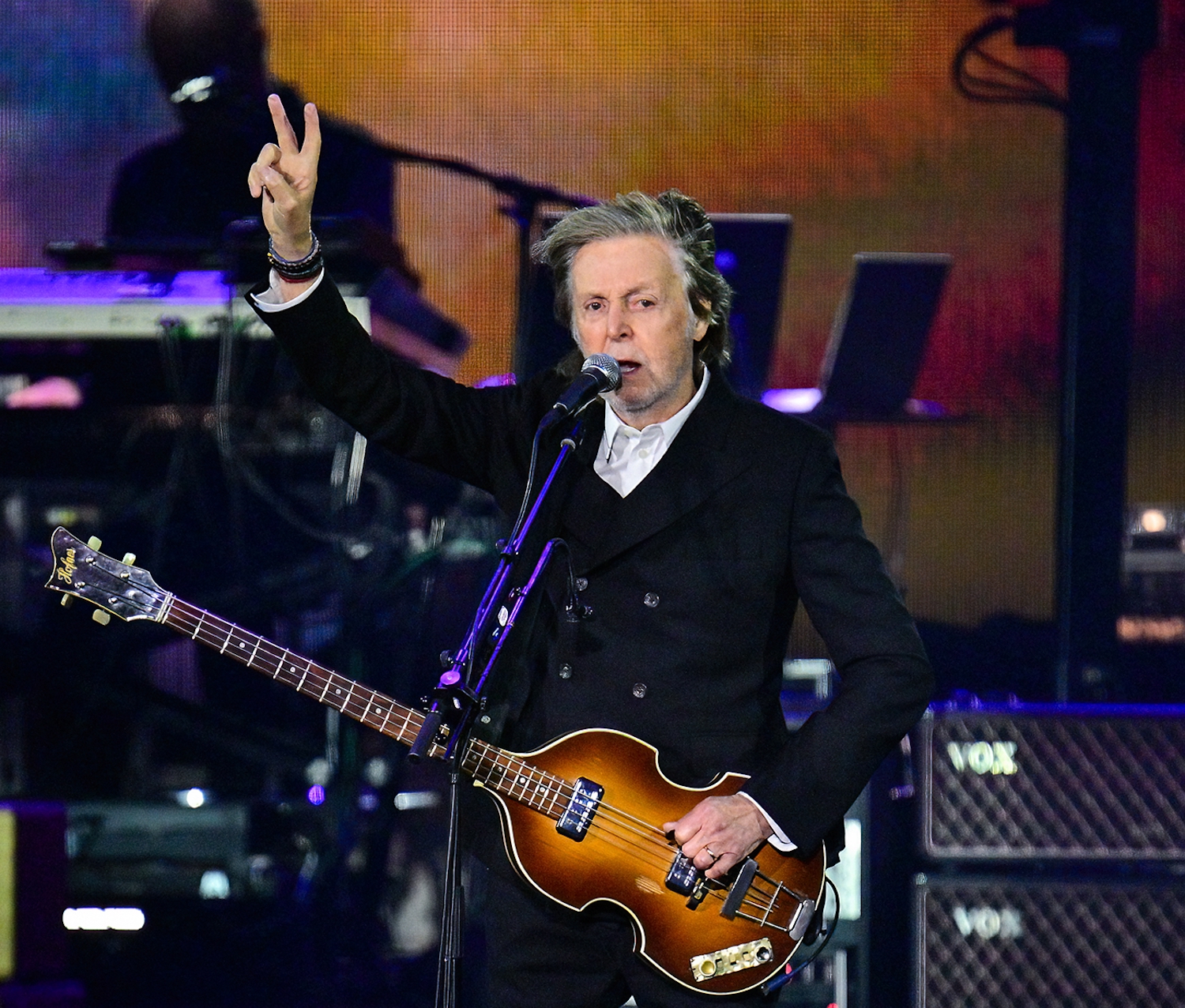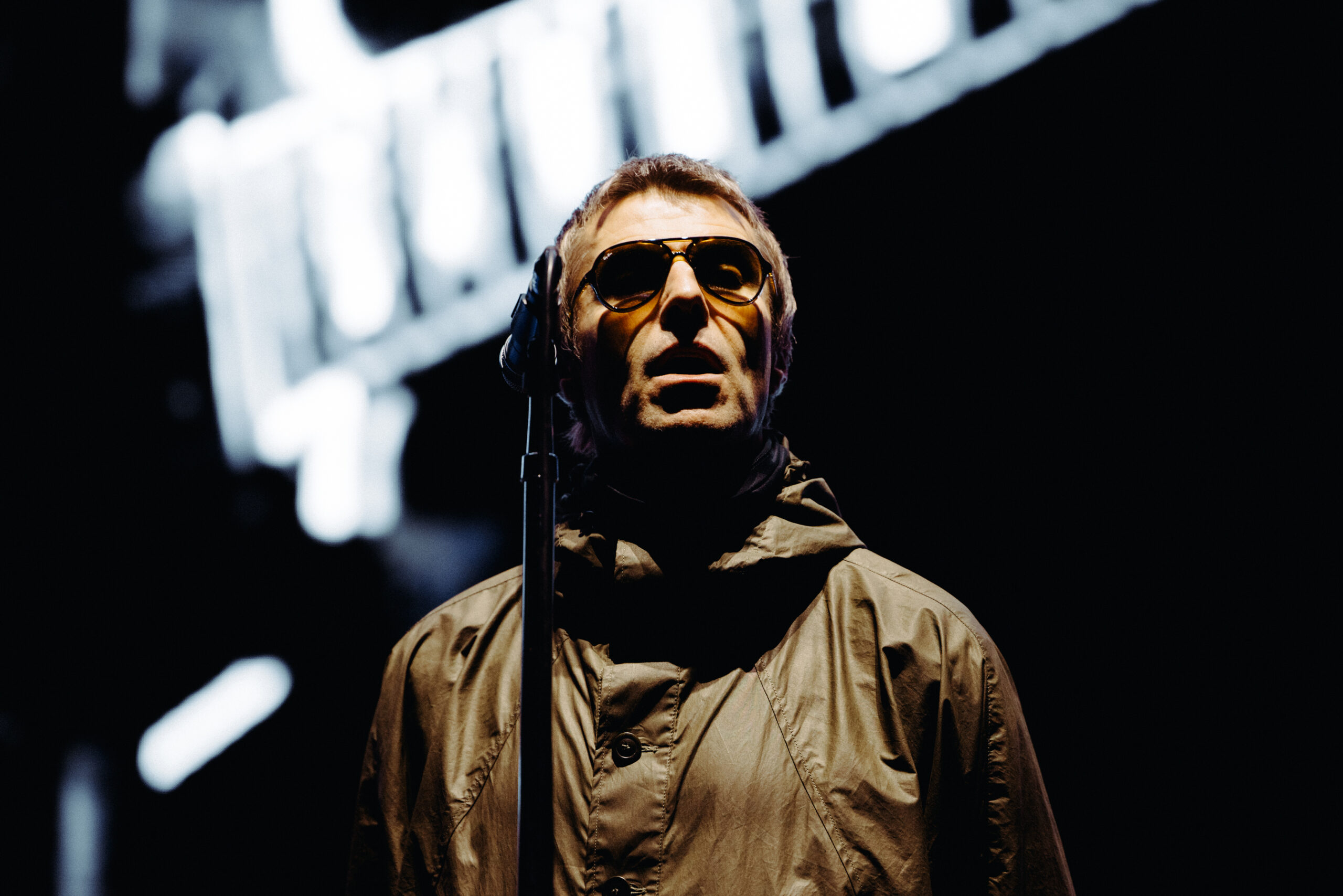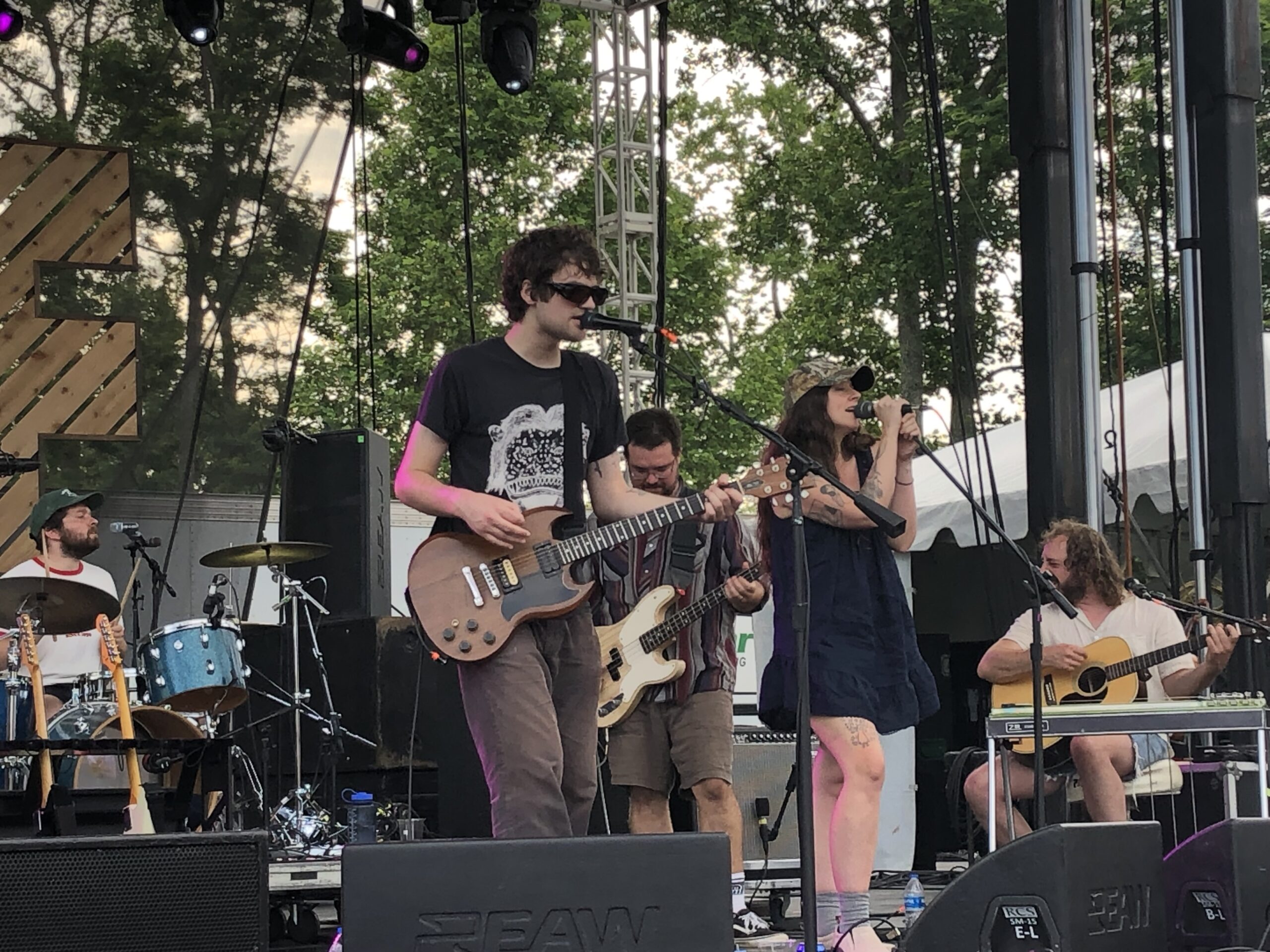Friday marked the return of Pitchfork Music Festival to Chicago's Union Park for the first time since July 2019. The fest's COVID-era comeback offered lots of compelling options on the first day, starting with some dystopian rap (Armand Hammer) and rocket-fueled emo (Dogleg) that I would've liked to see if my flight hadn't been pushed back. Among the acts I actually did witness in part, there were fiercely howled anthems from Hop Along, cantankerous prog-rock bombardments from black midi, and reminders of the quirky idiosyncrasy of 2000s-era indie from a re-energized Animal Collective and a reunited Fiery Furnaces.
Nestled in the corner of the park, a procession of women from around the world dropped beats at the Blue Stage. Colombia's Ela Minus dished out techno for a radical resistance. Wielding a pair of drumsticks, Wales' Kelly Lee Owens brought physicality and joy to her array of devices. Korean-American producer Yaeji played the part of pop star then retreated behind the decks, cued up vibrant house music, and ceded the stage to a pair of modern dancers. And back at the two adjacent main stages, the night closed out with a reminder of the often somber state of indie rock circa now.
On the Red Stage, there was Big Thief, a band in the truest sense, easing into their set with a procession of patient, beautiful folk-rock songs. Adrianne Lenker, Buck Meek, Max Oleartchik, and James Krivchenia seem to move as a single organism, and even their more stripped-down and understated songs command attention thanks to the magnetism with which Lenker unleashes her melodic coos and cries. Still, their earthy lullabies are not what made this my favorite performance of the day. It was the explosive Crazy Horse energy they brought to rockers like "Not," which built to an incendiary extended jam, and the pristinely blustery new song "Dragon," which made for a hell of a finale. Big Thief are at their best when slinging these kinds of full-on electric-guitar assaults, but they've ascended to such a revered stature that even at their quietest their audience was rapt.
Still, within the cultural sphere encompassed by Pitchfork, few artists exude more star power than Bridgers in 2021. Ever since her 2017 debut album Stranger In The Alps, the LA singer-songwriter has seemed to pick up fans at an exponential rate. Her ascent has been aided by a seemingly endless procession of high-profile collaborations, a similarly voluminous series of pandemic-era TV performances, and a dry comedic brilliance on Twitter. The baseline of Bridgers' success, though, is her bottomless well of spectral, trembling ballads about depression and yearning and alienation, many of them collected on Punisher, the 2020 album that elevated her to celebrity status and crystallized her as a key influence and archetype in modern music. As a headliner for a festival of Pitchfork's focus and scope, there could hardly be a more obvious choice.
The only flaw in that logic is that Bridgers' catalog translates awkwardly to the festival setting. Punisher in particular is an album defined by vivid textures and darkly funny, piercingly vulnerable lyrics, the kinds of lines that would have been incredible AIM away messages 20 years ago and make excellent Instagram captions today. It is a headphones record meant for close listening, and with rare exceptions, it stays within a narrow dynamic range. Bridgers played the whole album over the course of her 15-song set Friday at the Green Stage, essentially going through the tracklist in order while sprinkling in highlights from earlier releases and a cover from Bo Burnham's Inside. It was a performance that could only work after dark, one that would have wilted in the afternoon sun, but it made for a weirdly drowsy conclusion to the first day of the fest.
Bridgers' sense of humor came through immediately as she and her band -- all of them wearing the skeleton T-shirts that have become the official uniform of her Punisher era -- took the stage to the strains of the Black Eyed Peas' "I Gotta Feeling." They showed off their knack for subtle splendor with a brisk opening run through "Motion Sickness," one of the more upbeat singles from Stranger In The Alps. At the end, Bridgers held out a dramatic final note over a melancholic F chord that never resolved back to C -- a lovely introduction that established the night's sighing tone. Then the video display became a starry backdrop, over which an animated Punisher pop-up book unfolded scenes tied to each song, and we began our descent into the album's solemn depths.
It helped that there was a pretty light show during "Garden Song." It helped that "Kyoto," with a buoyant horn arrangement and a skip in its step, was there to break up the ballads early on. ("This one's for my dad," went her introduction. "Fuck you, Dad!") It helped that most songs from Punisher played like low-key hits, as demonstrated by the sequence of "Punisher" into "Halloween" into "Chinese Satellite." It helped that when every song is sparse, every little instrumental flourish stands out: the aching slide guitar on "Scott Street," the way the kick drum lends momentum to the slow-dance-under-stars vibe of "Moon Song," the gorgeous violin woven throughout "Savior Complex." Bridgers further livened things up with banter about jumping into Lake Michigan ("I hope I don't get E. coli after avoiding Covid") and a kiss on the cheek for each bandmate.
Yet just as Punisher starts to drag as the slow jams pile up, Bridgers' set began to feel anticlimactic later on. Her band's tasteful, rippling beauty can only accomplish so much when the energy level remains so consistently low. Even "Me And My Dog," her instant-classic contribution to the boygenius EP, was stripped back to a solo arrangement that robbed the song of its cathartic power. Playing it alone made some kind of sense given the absence of Bridgers' boygenius bandmates, but damn, "I wanna be emaciated!" should have been a shout-along climax, not one more bit of quivering narration. As a fan, it confirmed my longing for more variety in Bridgers' catalog; had I come into the festival with no prior knowledge of her work, I might have wondered what the fuss was all about.
One thing that kept me tuned in was the knowledge that "I Know The End" was coming up. Not only does the Punisher finale boast some of Bridgers' sharpest lyrics -- a Wizard Of Oz-inspired treatise that finds room for the personal and universal, for strained interpersonal relations ("After a while you went quiet, and I got mean") and apocalyptic visions of a society in decline ("Windows down, scream along/ To some America first rap-country song"). It also proves how cataclysmically powerful her music can be when she decides to let it rip. The song made for a thrilling conclusion Friday night, a measured build from sorrow to sarcasm to abject horror, ending with Bridgers screaming into her microphone. Such extreme theatrical onslaughts are a trick you can't lean on too often, but a little more of that fire would go a long way toward a live show worthy of Bridgers' talent.






